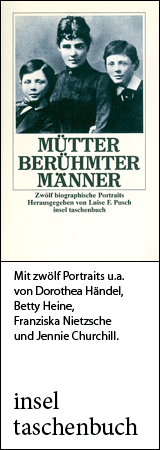Biographies Tatjana Nikolajewa

born on May 4, 1924 in Beschitz, Russia
died on November 23, 1993 in San Francisco, during a concert
Russian-Soviet pianist and composer
100th birthday on May 4, 2024
Biography
The artist considered it a “stroke of especially good fortune” that her mother was a pianist who had founded a music school in the small town where Nikolayeva lived. She encouraged her daughter as best as she could, and never demanded too much from the child.
At the age of thirteen, Tatiana was admitted by competitive examination to the famous Central Secondary School of Music in Moscow, the school attended before entrance to the Conservatory proper, from which outstanding musicians have emerged. Only 25 out of 600 applicants were accepted, and her mother had already purchased a return ticket as a precaution, but her daughter passed with flying colors.
Tatiana Nikolayeva went on to study at the Tchaikovsky Conservatory in Moscow and graduated in 1947 as a prize-winning pianist with numerous awards. But she felt the urge to continue learning, and shortly thereafter she re-enrolled at the Conservatory in order to study composition. In 1959 she was offered a teaching position at the Moscow Conservatory, and in 1965 she was given a professorship.
Tatiana Nikolayeva performed regularly throughout her life and built up an extraordinarily extensive repertoire ranging from Johann Sebastian Bach to modern composers. Bach was her great favorite, and she made a name for herself as an individualistic and skilled interpreter of his keyboard works. His compositions suited her style of interpretation; her lucidity and attention to polyphonic development allow the listener to discern the individual voices in a piece as well as correspondence with other voices in echoes and counterpoints.
In 1950, Nikolayeva won first prize at the International Johann Sebastian Bach Competition that had been inaugurated in Leipzig to mark the bicentenary of Bach's death. She also played all of Beethoven's piano sonatas and his five piano concertos, as well as works by Chopin, Shostakovich, Rachmaninov, Bartók, Prokofiev and many others.
The cantatas, song cycles, piano pieces and concertos she composed were influenced by late Romanticism and were unfortunately generally regarded as not contemporary enough. They were therefore rarely performed.
Tatiana Nikolayeva played with force and energy in the Romantic tradition, yet with great precision. She had mastered the art of independent voices, with the singing piano tone never neglected. The expressive, cantabile quality was convincing due to the wealth of contrasts she achieved through her differentiated touch technique as well as her intellectual penetration.
The great pianist died of a stroke during a concert in San Francisco. She was playing Shostakovich's Preludes and Fugues, which he had composed for her in 1950 for the Bach bicentenary.
(Text from 2003; translated with DeepL.com; edited by Ramona Fararo, 2024.)
Please consult the German version for additional information (pictures, sources, videos, bibliography).
Author: Eva Rieger
Quotes
Despite Dorothea von Ertmann and Elly Ney, who was probably the only woman to record opus 111, this last Beethoven sonata seems to be the domain of men. Tatiana Nikolayeva was also unable to refute this impression. (Albrecht Dümling, review from 1986)
I was a completely normal girl with normal children's interests, I played with other children, I wasn’t isolated, and to this day I have not lost the feeling of happiness and pleasure that comes whenever I play for other people. (Tatiana Nikolayeva)
An imperturbable, motherly woman, somewhat reminiscent of Helene Weigel. Should she also be called a Mother Courage of the piano? (Hans-Jörg von Jena)
If you hold the rights to one or more of the images on this page and object to its/their appearance here, please contact Fembio.



